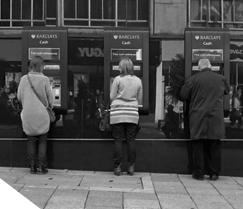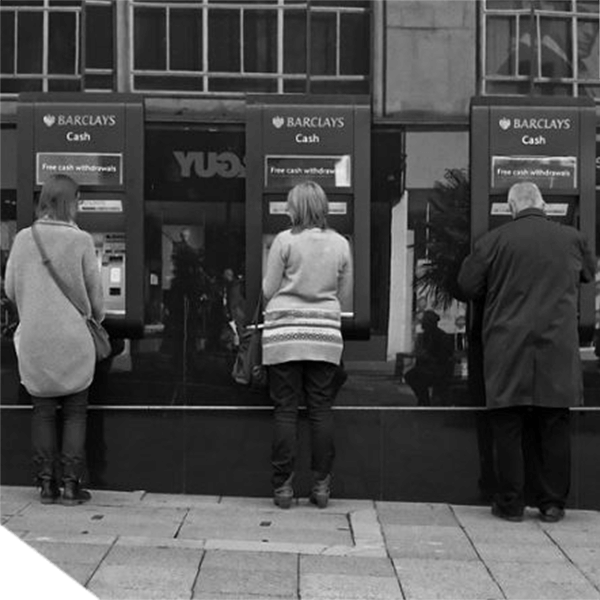
Do you know someone else’s PIN number?
How financial services could better help us help each other.
This year, one in four of us will experience a mental health problem. If it isn’t us personally, we will all know someone affected, be it a partner, friend or family member.
We can all provide support to people that we know going through a period of poor mental health, but some of the ways to help are easier than others. We can send a text, or phone to check in on how they’re doing, we can offer to help with something practical like cleaning or shopping. What we often struggle to do, however, is help someone manage their money when they feel unable to do so alone.
Difficulties controlling spending, managing bills or putting off dealing with them entirely are just some of the problems our research panel have told us they face while unwell. So it’s essential that financial service providers have simple, safe options available for supporting loved ones with these challenges. At the moment, this just isn’t happening.
Why we are concerned
835 of people caring for someone with a mental health problem have worried about that person’s finances, and it seems existing options offered by financial providers don’t allow them to help in the ways they would like to.
Power of Attorney is often seen as too restrictive for those whose mental health may fluctuate and who only need help with their finances some of the time. Beyond this, the options available just aren’t best suited to providing help with managing money. People are currently putting themselves and those they support at risk by having to find workarounds like opening joint bank accounts or breaking the terms of their bank account and sharing PINs with others.
“I had to open a joint bank account to help him but this has affected my credit rating adversely.”
“My partner keeps my bank card and puts a small amount of money each week into my account so that I can’t do this again.”
We want to change this
We want to help change the system for the better, but recognise the need to strike a careful balance. There are times when you may need to provide extra support, and other times when the person you care for can manage their money perfectly fine by themselves. It’s also important to make sure that any systems that allow a third party access to information about someone else’s money safeguard against the risk of abuse.
Nonetheless, we feel there are simple solutions that could make a real difference. For example you can already sign up for monthly text alerts of your bank statement, what if people could also opt in to send alerts to a trusted friend? Then during a period of poor mental health it could be as easy to use your phone to check on how a friend or loved one is feeling as to make sure they don’t fall behind on their bills.
We want to hear from you
If you have helped someone manage their money during a period of poor mental health we want to hear about your experiences: what issues you have had or barriers you have faced, and most importantly what you think would help. You can join our research panel here,
If someone else has supported you to manage your money, we’d love to hear from you too.
With your help we can work towards flexible solutions that will make supporting someone with a mental health problem to manage their money a much better process for everyone.
